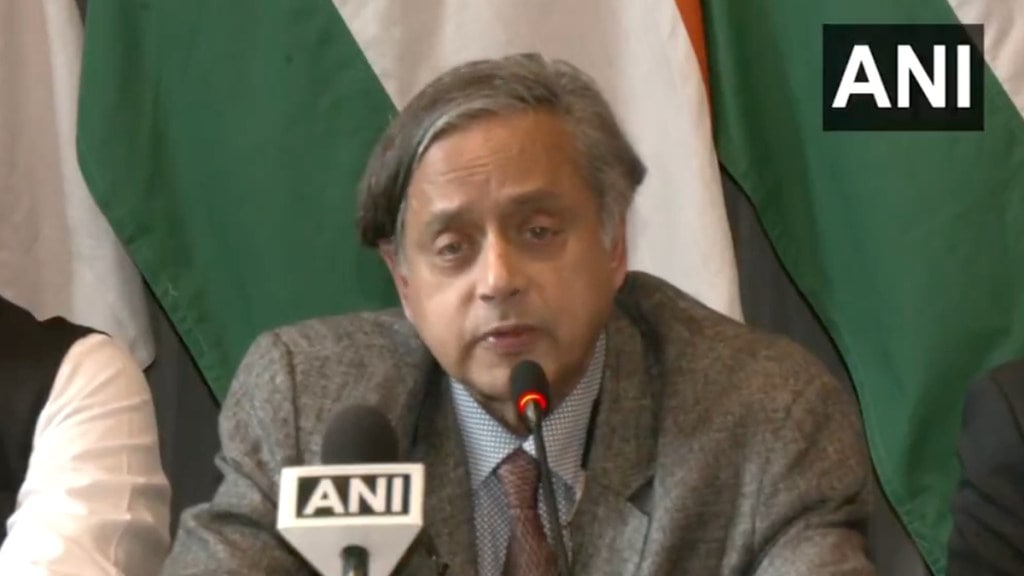Congress MP Shashi Tharoor has expressed “disappointment” with the Colombian government’s response to India’s retaliatory strikes under Operation Sindoor, saying there can be “no equivalence between those who attack and those who defend.” Speaking at a press conference on Thursday (local time) during his international visit, Tharoor was addressing concerns over Colombia extending condolences for Pakistani casualties rather than condemning the terrorism that provoked India’s actions.
“We were a little disappointed in the reaction of the Colombian government, which apparently expressed heartfelt condolences on the loss of lives in Pakistan after the Indian strikes, rather than sympathising with the victims of terrorism,” Tharoor said.
India launched Operation Sindoor on May 7 in response to the Pahalgam terror attack that killed over a dozen security personnel. The strikes targeted terror infrastructure across Pakistan and Pakistan-occupied Kashmir.
Indus Waters Treaty suspended
Tharoor also addressed India’s decision to suspend the Indus Waters Treaty, a long-standing agreement from the 1960s, citing repeated violations of goodwill through terrorism. “We have given Pakistan generously the waters they are entitled to… But the time for acting on the basis of goodwill unilaterally is frankly no longer with us,” he said. The treaty, he emphasised, remains suspended until Pakistan demonstrates a willingness to engage in peaceful and cooperative conduct.
Tharoor appealed to Colombia and other global stakeholders to understand the broader context of India’s actions. “We have the impression that perhaps the situation was not fully understood when that one statement was made. Understanding is extremely important for us,” he said. He highlighted that India is a constructive global force and urged the international community to pressure nations that shelter terrorists.
“We certainly hope that other governments will tell those who give safe haven and protection to terrorists to stop doing so. That would be very helpful indeed, whether in the Security Council or outside it,” he added.
‘If they stop, we stop’
On questions regarding third-party mediation, Tharoor said there had been outreach from senior officials from the US, France, UAE, and Saudi Arabia following the strikes. “The message we gave to all these countries was exactly the same. We are not interested in war. We were just conducting retribution for a terrorist attack,” he clarified.
He added that while some of these countries may have conveyed India’s stance to Pakistan, there was no formal mediation process and certainly no Indian participation in any such discussions.
China’s military ties with Pakistan
Tharoor also pointed to China’s significant military and economic involvement with Pakistan. “China supplies 81 per cent of all Pakistani military equipment… The China-Pakistan Economic Corridor is the single largest project in China’s Belt and Road Initiative,” he noted, adding that India’s concern lies with terror activities, not Pakistan’s development partnerships.
Colombia urged to reassess geopolitical stance
Reiterating India’s right to self-defence, Tharoor stressed that India’s actions were a direct response to terrorism. “We are here looking for understanding… There can be no equivalence between those who dispatch terrorists and those who resist them,” he said. He also referenced credible evidence linking the Pahalgam attackers to Pakistan-based Lashkar-e-Taiba operatives.
Referring to reports of a public funeral for a sanctioned terrorist in Pakistan, attended by uniformed officials, Tharoor said, “That is the extent of complicity… between the terrorists and those who finance, guide, train and protect them.”
Tharoor concluded by saying that India had acted in proportion to the provocation it faced. “India suffered a grievous terrorist attack… No one was arrested. No prosecution. So we did what was necessary. We responded. And if they stop, we stop.”

